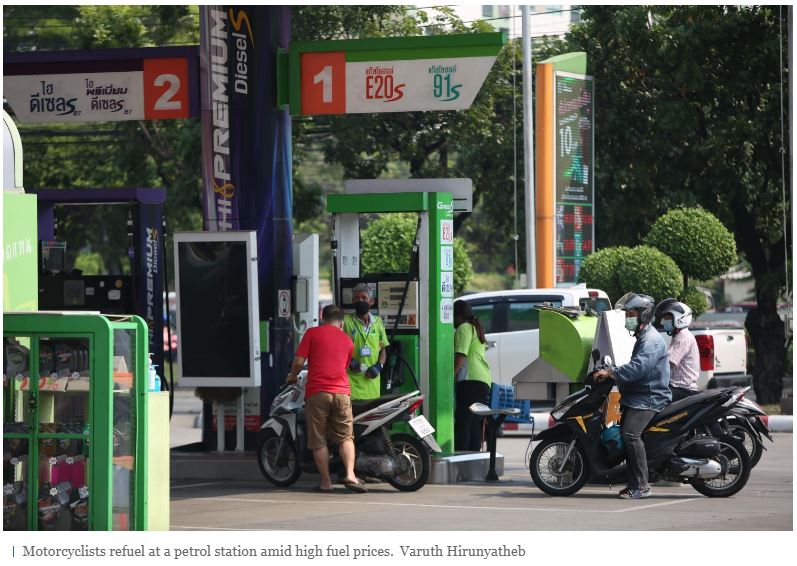Thailand: TDRI warning over living cost measures
A researcher at the Thailand Development Research Institute (TDRI) says he supports some of the measures announced by the government on Tuesday to ease living costs, but notes that some could affect the social security system in the long run.
This week the government announced a 10-point plan to alleviate the impact of high fuel prices, caused in part by the Russia-Ukraine war.
Nonarit Bisonyabut, research fellow at TDRI, said he agreed with measures aimed at easing the living costs of state welfare cardholders as they were low-income earners acutely affected by the fuel price spike.
He also agreed with the provision of gasohol relief payments to working motorcycle drivers, as they are a key transport service for city dwellers.
He added that some measures such as the subsidisation of natural gas for vehicles, diesel, cooking gas and electricity costs could ease the cost of living at a certain level but could also add financial burdens onto the government. These measures should not continue into the long term, he added.
Mr Nonarit disagreed with the measure that reduces social security contributions for both employees and employers from 5% to 1% to give workers more spending power and companies greater liquidity.
The measure could weaken the country’s social security system in the long term, Mr Nonarit said. He questioned whether the reduction in contributions would affect the fund’s ability to make retirement payments to pensioners.
He said it was uncertain when the Russia-Ukraine war would end, and that the government had already borrowed a hefty 1.5 trillion baht to mitigate the impact of the Covid-19 pandemic on the economy. Therefore the government should not borrow more if it was not necessary.
Mr Nonarit added that if the government needed more loans, it should focus on borrowing to help the economy recover. Most of its loans had been spent on alleviating the impact of the pandemic, but had not been directed at small and medium-sized enterprises to help them make long-term business adjustments.
On Tuesday the cabinet approved reductions in monthly social security contributions for both employers and employees, as part of a 70-billion-baht package designed to help ease the impact of rising fuel prices.
From May until July, monthly Social Security Fund (SSF) contributions for salaried employees will be reduced from 5% to 1%, and former employees who continue to contribute to the SSF after leaving their jobs will see their payments lowered from 9% to 1.9% over the same period.
The cabinet also approved a raft of other measures to counterbalance the fuel price spike. They include increasing cooking gas subsidies for 3.6 million holders of state welfare cards from 45 baht to 100 baht a month, and providing a monthly 100-baht discount to 5,500 vendors and hawkers who hold state welfare cards.
Gasohol costs will also be reduced by 250 baht per month for 157,000 working motorcycle drivers registered with the Department of Land Transport.
The retail price of natural gas for vehicles will also be maintained at 15.59 baht per kg.
Source: https://www.bangkokpost.com/business/2284210/tdri-warning-over-living-cost-measures


 English
English




